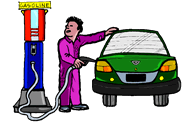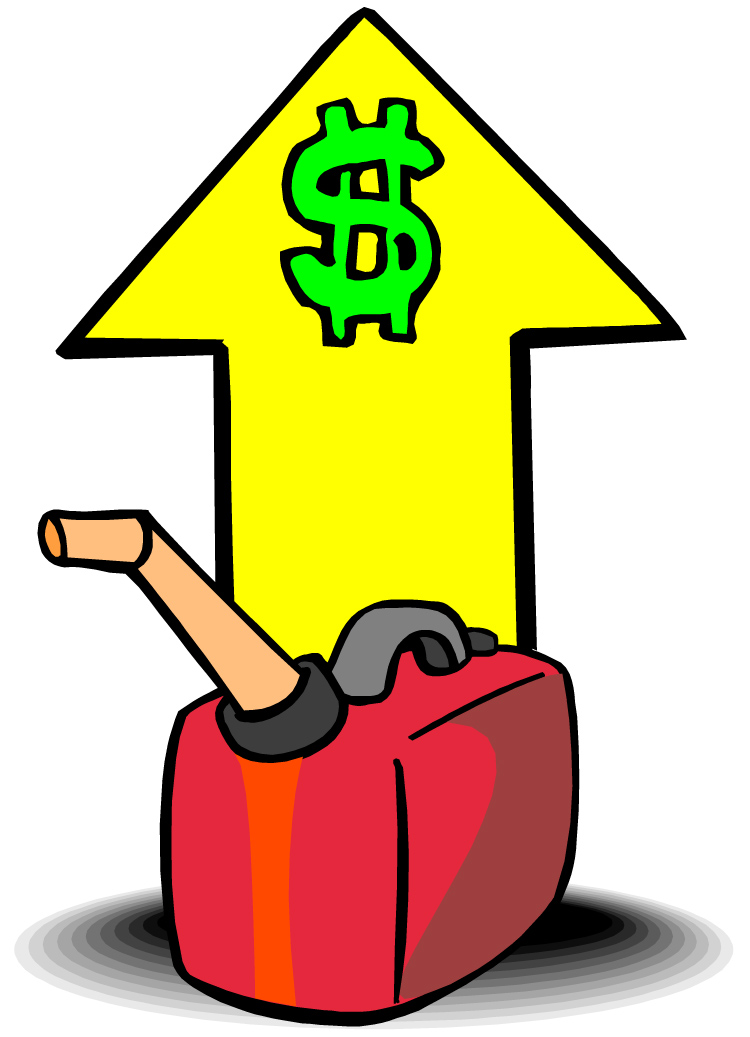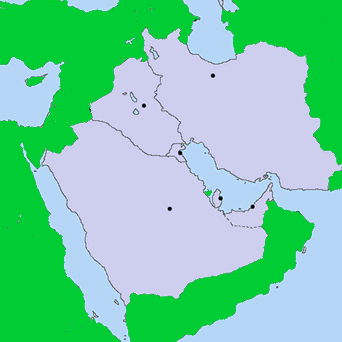The Price of Gasoline: What’s Behind It?


In this lesson, students investigate the variables that contribute to the cost of gasoline. They learn that while OPEC nations do influence the price of oil and thus the price of gasoline, other factors also influence the price.
Introduction
 Most students have been present while their parents have filled their cars with gasoline. They might have heard their parents talking about fluctuations in gas prices. In this lesson, students acting as detectives for the U.S. government consider why the price of a gallon of gas has become so expensive recently. They investigate what happens to the money that consumers pay for gas. In the process, they develop an understanding of the role that OPEC nations play in setting gas prices, and they learn that gas prices are influenced by a variety of sources. In a concluding activity students determine whether it is fair to blame OPEC nations for the high cost of gasoline.
Most students have been present while their parents have filled their cars with gasoline. They might have heard their parents talking about fluctuations in gas prices. In this lesson, students acting as detectives for the U.S. government consider why the price of a gallon of gas has become so expensive recently. They investigate what happens to the money that consumers pay for gas. In the process, they develop an understanding of the role that OPEC nations play in setting gas prices, and they learn that gas prices are influenced by a variety of sources. In a concluding activity students determine whether it is fair to blame OPEC nations for the high cost of gasoline.
Learning Objectives
- Identify the core functions of OPEC and list the nations that are members of OPEC.
- List the multiple entities that participate in the production and sale of gasoline.
- Evaluate the claim that OPEC nations are to blame for the high cost of gasoline.
Resource List
-
A Letter From the President: This is an Econ EdLink worksheet that addresses questions OPEC is and where the money consumers spend at the pump goes
A Letter from the President: Student Version
A Letter from the President: Teacher Version
-
Organization of the Petroleum Exporting Countries: This site explains what the OPEC cartel is.
https://www.opec.org/opec_web/en/17.htm
-
OPEC Revenues Factsheet: This page provides a number of factsheets related to net oil export revenues.
https://www.eia.gov/beta/international/analysis_includes/special_topics/OPEC_Revenues/opec.pdf
-
A Primer on Gasoline Prices: This page discusses price components of regular gasoline.
www.eia.doe.gov/pub/oil_gas/petroleum/analysis_publications/primer_on_gasoline_prices/html/petbro.html
-
OPEC Says it Has Lost Control of Oil Prices: This article explains the OPEC ministers' contention that they are no longer in control of gasoline prices.
www.msnbc.msn.com/id/7190109/
-
World Oil Demand 'To Rise by 37%': An article from the BBC which discusses an upward trend in demand of oil.
news.bbc.co.uk/2/hi/business/5099400.stm
-
Why High Oil Prices Haven't Cut Demand: An article from MSNBC which gives another insight into why the gas price increases are not decreasing demand for gas.
http://www.nbcnews.com/id/6249750/ns/business-oil_and_energy/t/why-high-oil-prices-havent-cut-demand/#.XUsXq_lKjcs
-
Letter to the President: Here is an EconEdLink worksheet that gives the students an opportunity to explain their findings to the President.
Letter to the President
-
Interactive Activity: This interactive quiz asks students to identify locatins of OPEC nations.
Mapping OPEC Activity
-
Cars: Now and Then: This page asks the students to compare their own need for cars to the need of their grandparents generation when they were children.
Cars: Now and Then
Process
Begin this lesson by asking the students if they ever hear their parents talk about the price of gasoline. Encourage them to explain what they know about the price of gasoline.
After a few minutes, inform the students that in recent years the price of gasoline has increased considerably. Ask the students why this might be a problem. Help them understand that people often rely on their cars for transportation. Since most cars require gasoline to run, people have to pay for gas if they want to drive their cars. However, since people don't have an unlimited amount of money, they have to make decisions as what they will spend their money on. If they are forced to spend more money on gas they will not be able to spend that money on other things they may want or need.
students why this might be a problem. Help them understand that people often rely on their cars for transportation. Since most cars require gasoline to run, people have to pay for gas if they want to drive their cars. However, since people don't have an unlimited amount of money, they have to make decisions as what they will spend their money on. If they are forced to spend more money on gas they will not be able to spend that money on other things they may want or need.
Ask the students how elected officials such as the President might be affected when people have to spend more money for gas. Help the students understand that people often become unhappy with government officials when gas prices rise. For example, people sometimes think that elected officials should be able to lower the prices of gas. Inform the students that in a market economy, such as the United States, where elected officials do not typically set prices, neither the President nor any other elected official controls what people have to pay for gas. Despite this fact, however, people often blame the President. Tell the students that for this lesson they should pretend they are detectives who work for the United States Department of Energy. The President has told them that he wants to blame the high price of gas on the nations that provide the most oil to the United States. Explain that the President wants to claim that these nations, belonging to an organization (or cartel) called OPEC (which stands for Oil Producing Exporting Countries), charge too much money for the oil they sell to oil companies in the United States in barrels. Explain that the President has asked the detectives that work for the Department of Energy to determine whether it is fair to blame the price of oil on OPEC nations.
Inform students that economists do not typically look at what is fair and what is not fair. They are simply interested in understanding how people firms and societies choose to allocate resources to fulfill their wants. However tell students that public policy makers use information that they glean from economics to make important decisions. Ask students what policy makers might do if they were to decide that oil prices are high because of the prices set by OPEC nations.
After this discussion, have the students print the A Letter From the President worksheet and work in groups of two or three to answer the questions at the end of the letter. The students may use this memo and the links provided to complete the worksheet.
| MEMO | |||
|
To: |
Detective | ||
|
From: |
Detective's Assistant | ||
|
RE: |
Research Support | ||
| I have identified sources where you can find the necessary information to answer each question: | |||
|
Question 1: |
| |
https://www.opec.org/opec_web/en/17.htm | |
|
Question 2: |
| |
https://www.opec.org/opec_web/en/17.htm | |
|
Question 3: |
| |
https://www.eia.gov/beta/international/analysis_includes/special_topics/OPEC_Revenues/opec.pdf | |
|
Question 4: |
| |
A Primer on Gasoline Prices | |
|
Question 5: |
| |
OPEC Says It Has Lost Control of Oil Prices | |
| Further research references; | |||
|
| |
World Oil Demand 'To Rise by 37%' | ||
|
| |
http://www.nbcnews.com/id/6249750/ns/business-oil_and_energy/t/why-high-oil-prices-havent-cut-demand/#.XUsXq_lKjcs | ||
As a teacher you can use this already completed letter as an answer key.
After the students have completed this worksheet, reconvene the class and invite students to share their answers. Remind them that real detectives have to form theories and use information available to them to develop answers to  questions they are investigating. Now tell the students that since they are acting as detectives they have to take the information available to them and scrutinize it to develop theories and answers. Ask the students whether or not they think that the information available to them indicates that it is the OPEC cartel's fault that the price of gasoline has risen so high. Challenge the students to support their opinions. During this discussion, help the students understand that since OPEC nations are not the only ones who receive funds from the sale of gas it is possible that they are not at fault for high gas prices. Perhaps federal, state, and local gas taxes are to blame. Perhaps the large oil companies are charging too much money for refining the gas. Inform the students that large oil companies have sometimes been accused of allowing their refining capacities to become outdated, which makes it more expensive to refine oil. Perhaps individual gas stations are making too much profit. It could also be the rapid growth of the economies in China and India causing a greater demand for oil. During this discussion, the students should recognize that there are so many variables that go into the price of gas that it is impossible to accurately pinpoint the reasons for increases in gas prices.
questions they are investigating. Now tell the students that since they are acting as detectives they have to take the information available to them and scrutinize it to develop theories and answers. Ask the students whether or not they think that the information available to them indicates that it is the OPEC cartel's fault that the price of gasoline has risen so high. Challenge the students to support their opinions. During this discussion, help the students understand that since OPEC nations are not the only ones who receive funds from the sale of gas it is possible that they are not at fault for high gas prices. Perhaps federal, state, and local gas taxes are to blame. Perhaps the large oil companies are charging too much money for refining the gas. Inform the students that large oil companies have sometimes been accused of allowing their refining capacities to become outdated, which makes it more expensive to refine oil. Perhaps individual gas stations are making too much profit. It could also be the rapid growth of the economies in China and India causing a greater demand for oil. During this discussion, the students should recognize that there are so many variables that go into the price of gas that it is impossible to accurately pinpoint the reasons for increases in gas prices.
Conclusion
To conclude the lesson, ask the students what they have learned. (The lesson as a whole is meant to suggest that when an individual purchases gasoline, the money he or she pays is divided and distributed to a number of different entities, each of which has been involved in the production of gas. Tell the students whenever they pay for anything, the money that they spend on the product is distributed to a number of different entities, each of which has been involved in the production of they item they have purchased. Help the students understand that individual entities involved in the production of an item can insure that a high price is charged. However, when a price is too high, charged consumers will likely not purchase the good.)
Extension Activity
- During this lesson, the students have learned that the following nations are members of OPEC: Algeria, Indonesia, Iran, Iraq, Kuwait, Libya, Nigeria, Qatar, Saudi Arabia, United Arab Emirates, and Venezuela. As an extension, challenge them to identify the territories of each of these nations, using this Mapping OPEC Activity The students are asked to drag the names of each country to the appropriate territory. This mapping activity will add a geographic perspective to this issue.
- In this lesson, the students have considered the price of automobile gasoline. Certainly, driving has significantly influenced our economy. In order to develop an understanding of the ways in which cars have influenced our national economy, ask the students to print out and complete the Cars: Then and Now graph. The students are asked to consider their reliance on cars today. They are also asked to interview an older adult about the ways in which they relied on cars as children. The students then compare the different answers to develop an understanding of the evolving importance of cars in the national economy.
Assessment
Have the students write a letter to the President of the United States, using the Letter to the President worksheet, explaining whether or not they believe that the President should blame the high price of gasoline on OPEC nations. Inform the students that in their letters to the President they must explain their conclusions by referring to what they have learned about the factors that influence the price of gasoline at the pump. After the students have written their answers, invite them to share them with one another.
